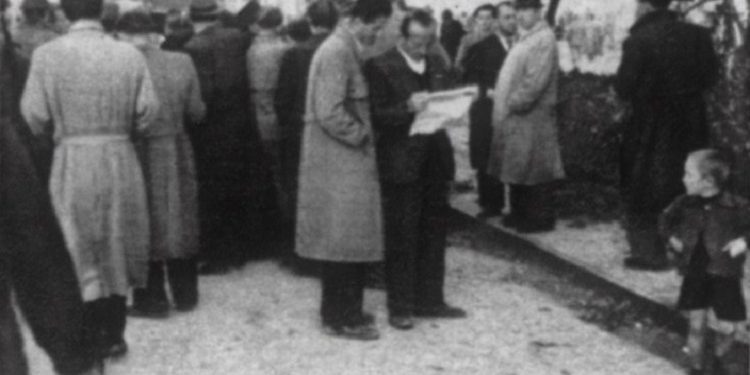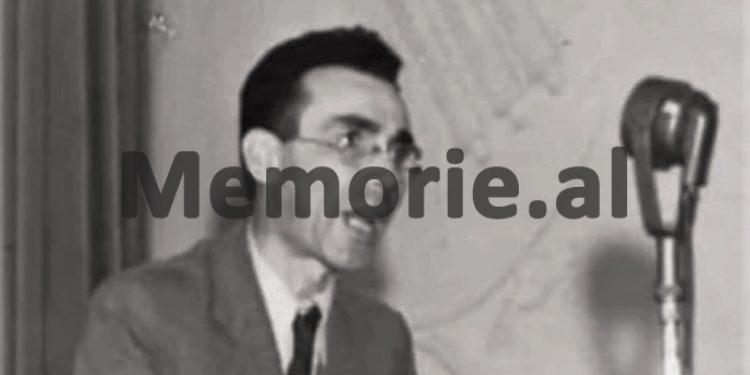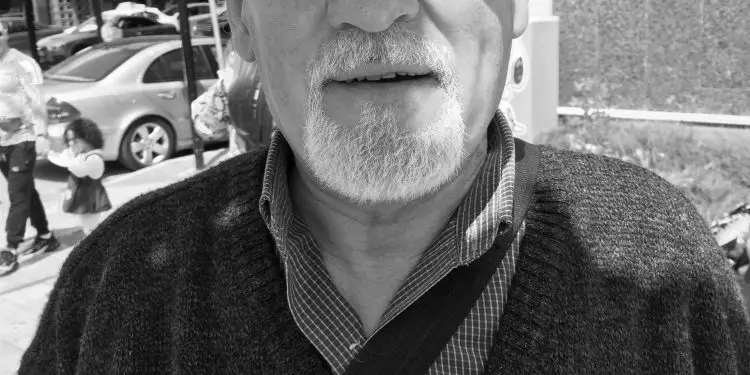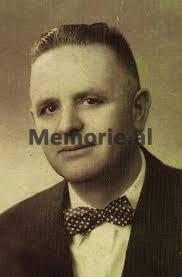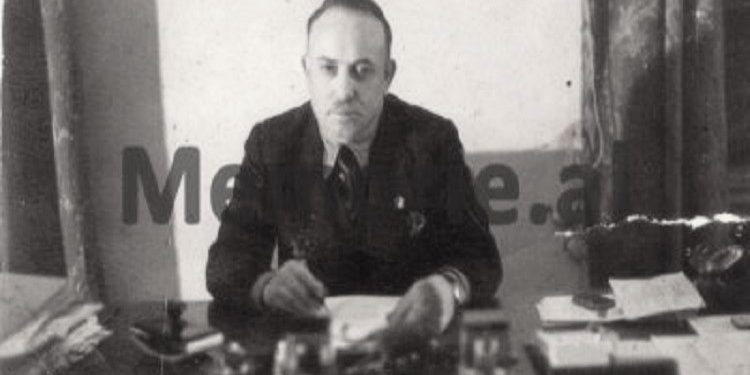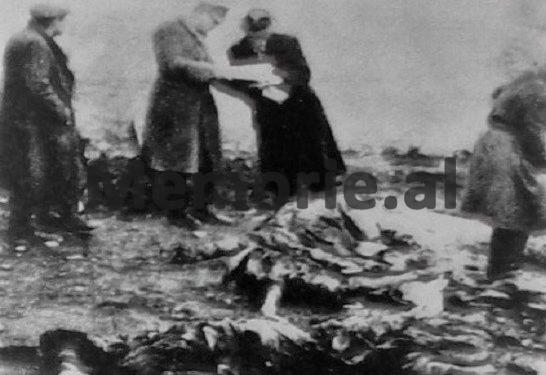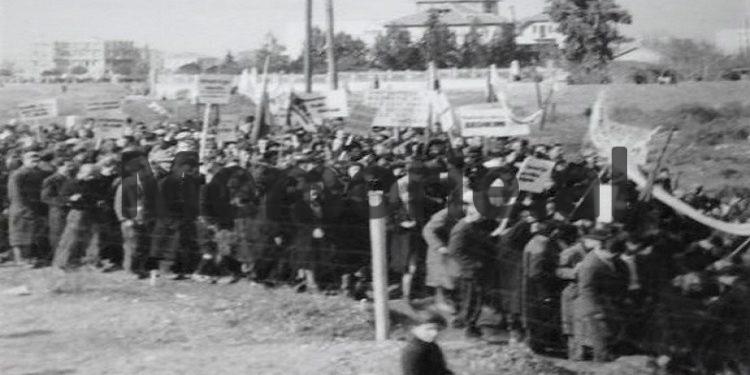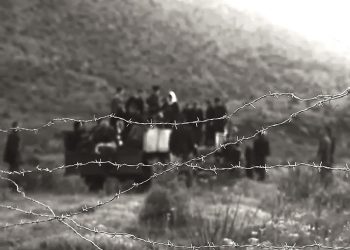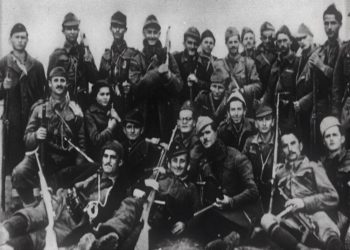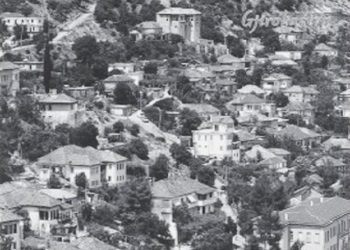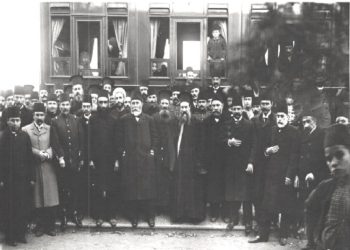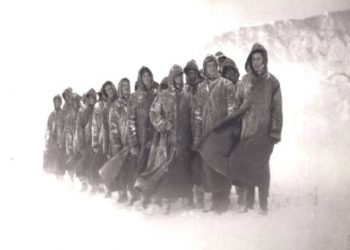By Astrit Jegeni
Second part
– The event of February 4, 1944, in the unknown testimonies about the role of Xhaferr Deva, by his personal secretary, Isuf Deva, and his colleague, former Minister of Elections, Musa Gjylbegu-
Memorie.al/ Constantly mass murders committed under the power of hatred and revenge carry in time endless pain and the feeling of revenge and retribution never fades. Unfortunately, politics has manipulated these black dates for its unreasonable and vulgar interests. In these 50-60 years, we Albanians have several such examples of mass murders, of the “punitive” type, carried out intense political situations, such as: “February 4, 1944”, “The Shefqet Peçi Murders in the Kukës River”, in in 1944, “The murders of Shefqet Peçi in the Kukës River”, in 1944, “The murders in Gurëz of Kurbini for Rexhe Deli”, in 1946, “The murders in Mirdita for Bardhok Biba”, in 1949, “The embassy bomb Soviet” in 1951, etc. By making public the causes, the motives, the characters who took part in these murders, both the victims and the killers, we believe that we make people aware and try to give them the mindset that these mass murders, at the end of in the end, they are the expression of a civilization that has no value and that needs to review its values. By explaining these events, away from the banal pragmatism of politics, I hope that, knowing the events as they really happened, we will make our civilization aware of logic of action, more reasonable and m is controllable. With this in mind, we are giving a modest study of the killings of February 4, 1944.
Continues from last issue
For this event, we are giving the confessions of two people who were active in the Albanian politics of the time and quite reliable in their confessions, about the very formation and their personal integrity and the functions they had in that turbulent political time for Albania
Confessions of Isuf Shaban Deva, about the murders of February 4, 1944
This article is based on the confessions of Mr. Isuf Shaban Deva, who, in 1943-’44, was the secretary of Xhafer Deva, Minister of the Interior of the Government of Rexhep Mitrovica. (File No. 2064/A (Archive of the Ministry of the Interior)
“A few days after the capitulation of Italy, Xhafer Deva was in Prizren, where he called me. I went to Prizren together with a delegation from Mitrovica, Vučiterne, Peje and other Kosmet countries (Kosovo and Metohija). The Second League of Prizren was founded in Prizren. At the head of the Second League of Prizren were Bedri Pejani, Xhafer Deva, Professor Mark Gjini, etc.
Bedri Pejani was elected chairman of the League. The Second League of Prizren had a political character. It aimed at the administrative organization of Kosmet, the unification of the armed forces and, together with the Germans, the protection of this country. The main enemy of Kosovo at that time was the Serbian Chetniks and the communists.
I, Isuf Deva, was the Secretary of the Second League in the sense of Administrator.
At this time, the Government of Rexhep Mitrovica was formed in Tirana, where Xhafer Deva took the position of Minister of the Interior. Xhafer Deva comes to Tirana together with Masar Sopot, Beqir Maloku, and Bedri Pejani, accompanied by his loyal men, such as: Tefik Bekteshi from Mitrovica, Gani Ibrahimi from Mitrovica, Nexhip Musa from Mitrovica, Rram Tutica from Pazari i Ri, Riza Korashi from Gjakova and Rexhep Budakova from Prizren.
These were members of the “Kosova” Regiment and informed us about the political attitudes of the population of Tirana. They also gave us the name lists of families and persons associated with the National Liberation Movement. Xhafer Deva calls me from Kosovo and appoints me his private secretary
On February 3, 1944, the communists assassinated and killed the nephew of Xhafer Deva, Fahri Ibrahimi, who had come to Tirana for work and was not involved in politics. On the occasion of the assassination of the nephew of Xhafer Deva, at the “Dajti” Hotel, Tahir Kolgjini, Hysni Dema, Kadri Cakrani, Xhelal Staravecka, Xhelal Mitrovica, Rrok Nallbani, Mato Murati, Beqir Maloku gathered together and then, when the nephew of Xhafer Deva died (Fahri Ibrahimi, was seriously injured and died after a while in the hospital), they came to Xhafer Deva’s house from 19.00, for consolation.
It was a few hours before midnight on February 4, 1944, when the lists of families and persons of National Liberation, on whom revenge and terror would fall, were compiled. As the list was finally placed in Xhafer Deva’s house, they got up and went to the Ministry of the Interior, I went home.
The list of people came from the archives of Xhafer Deva. At 22:30 that night, Xhafer Deva called me to the Ministry, where I went.
Kadri Cakrani, Qazim Mulleti and Hysni Dema also came to Xhafer Deva’s office. Xhafer Deva ordered me to go to Qazim Mulleti, who assigned me the sectors of action for revenge, I remember that for this night, we had 200 to 300 armed men available to act, who were from the “Kosova” Regiment. of the Gendarmerie and loyal elements of Kadri Cakran, Qazim Mullet, etc., who were divided in different places.
The directions they had to take were given by Xhafer Deva and Qazim Mulleti, and the armed groups had ready the lists of people to be arrested. In this terror, 320 people were arrested who were close to the Ministry of Interior in its prisons. The following persons were responsible for the control and arrests: Beqir Maloku, Qazim Mulleti, Mato Murati, Xhelal Staravecka, Hysni Gradeci from Podujeva, Qemal Mujku from Mitrovica and Ibrahim Murati from Mitrovica.
The shooting of these started at 01:00 after midnight and through the streets of different neighborhoods, in order to panic elements of the National Liberation Movement. The victims of this terror were left in the streets of the city until the evening of February 4. On February 4, I learned that around 80 people were killed and over 200 others were arrested and imprisoned. As the terror was done, we did not have any meeting to make any account on the activity that was done. Of all those who killed the most in the February 4 terror, it was Jelal Staravecka, but they did not tell me how many he killed.
After the February 4 terror attack, contradictions arose between the Mitrovica Government and Interior Minister Xhafer Deva, as various government officials of this government criticized the February 4 act. At this time, the Communist Movement in Kosmet grows and, happening in a situation of strife in the government and before the growth of the National Liberation War in Kosovo, Xhafer Deva leaves the post of Minister and leaves for Kosovo, to extinguish the Communist Movement, together with the people of his faithful. In this case, Xhafer Deva becomes the Chairman of the League of Prizren.
Isuf Deva’s testimony was received by the Ministry of the Interior!
First: many of the names of the people that Isuf Deva implicates in his accounts as having participated in the terror of February 4, 1944, have never been publicly mentioned in the communist historiography on the matter, which leaves us in doubt about their veracity of this confession, at the same time we must take into consideration the fact that physical violence was used against Isuf Deva by the bodies of the Ministry of Interior and the confessions were taken by force. (File 2064/a p.10.)
I emphasize that in this article, I wrote only one of the forms of Isuf Deva’s confession about this matter, because the investigation of this event was done over a relatively long time and where Isufi, constantly confessing about this matter, gave different variants in the number of those killed and the names of the participants in this murder. In these changes, there are differences in the number of people killed; also he got the information about the number of victims orally from other people because he constantly used the expression (I found out that they were executed that evening.)
Isuf Deva’s epilogue
Isuf Deva was arrested in Zagreb on 11.6.1945 by the forces of the Yugoslav U.D.B. on 24.11.1945, who handed Isuf Deva over to the bodies of the Albanian Ministry of Internal Affairs, according to the request made earlier by the government Albanian, for many of those people she considered as: “war criminals”, who had left Albania in November ’44 and were in various countries of the West. On 30.1.1947, Isuf Deva was shot by the Ministry of Interior.
The confession of former minister Musa Gjylbegu, about the murders of February 4, 1944
This narrative is based on the statements of Mr. Musa Gjylbegu, an agronomist by profession (highly educated, graduated in Germany, master of three foreign languages, German, Italian and French. Mr. Gjylbegu, in the government of Rexhep Mitrovica, held the position of Minister of Botores. This material came from his court file that is in the Archives of the Ministry of Internal Affairs in Tirana.
“About the event of February 4, I have this information: on February 3, 1944, in New Tirana, Kadri Cakran was assassinated, where he was killed by two boys who were behind him and a wounded nephew, or a cousin, I don’t know what did you have Xhafer Deva’s nephew, his brother’s son, who was in Xhafer’s car, which he had taken, was also killed there. The night that would be known as the night of February 4, Xhafer Deva with Kadri Cakran, decided to commit terror and did it, on the morning of February 4, 84 people were found dead.
I found out about this issue on the morning of February 4th, from a subordinate named Jemin Çuçi. This one comes with another who had taken his brother and they came to beg me to take an interest, to save him if he was alive, they told me that they took our brother last night, Professor, they also took others, but they told me that we care about our brother, because many have killed him.
I called the Ministry of the Interior, but the Minister was not in the office, his private secretary, Isuf Deva, told me: “The Minister himself knows about that matter, but he is not there, because there is a funeral at home, they killed his grandson.” “. I then went to Prime Minister Rexhep Mitrovica and he told me about the murders that were committed and he then told me: the sons of Kadri Cakran, in revenge for the assassination, were taken and committed several murders.
The Ministry of the Interior, since it did not have enough forces, considered it necessary to take protective measures, for those who were suspicious and to secure them, they took them and put them in prison, so I asked him how many people were killed in this work, and he told me: five or six people, but I don’t have the details yet, but I will get them soon. From here I went to Mehdi Frashëri, in Mehdi’s office I found Lef Nosi, Mihal Zallari, Lame Kareco, and Sotir Kondi.
Mihal Zallari, with the latter two, had gone and begged Mehdi Frashëri to order the release of Qirjako Harito from prison, after Harito Harito was killed that night. He, in my presence, promised his release. After they left, I asked him about the incident, as if I didn’t know anything, and he told me: “Kadri Cakran’s sons made a reprisal for the assassination that was done to him last night, where several of them were killed, but the exact number is not known”.
The Ministry of the Interior has put some suspicious people in prison so that these people are not killed. After the funeral of his nephew, Xhafer Deva, I believe he will come to give me a brief explanation, I told him that there are rumors that 70 or 80 people have been killed, he said: I don’t believe it’s that many. When after three or four days, Xhafer Deva came to the Ministerial Council, where the Upper Council was also, Xhaferi said: “The issue of February 4, it was like some of Kadri Cakran’s sons, who today are not here at all, they did it as revenge for the February 3 assassination attempt. Since the Ministry of the Interior did not have enough forces to ensure (life) outside, they arrested and put a number of suspicious people inside. The people who were killed are seven or eight, no more.”
Xhafer Deva told you that public opinion speaks about you and that there are eighty or so of them and not what you say. He said that these words are not true. Public opinion and the Nalte Council were of the opinion that he did this work with Kadri Cakran. On this issue, no measures were taken either by the Ministerial Council or the High Council, because they were afraid of Xhafer Deva. The Nalte Council took as a measure the removal of the powers in a broad style of the actions of the Ministry of the Interior and took the military command itself, because before, the Ministry of the Interior had the competence of the Gendarmerie.
For the event of February 27, as explained to me by the Prime Minister of Mitrovica, it is possible in this way: Some people assassinated a patrolling unit of Prefect Mulleti, where a policeman was killed. The police found these people and executed them in the place where the policeman was killed; three or four people were killed. When we asked Xhafer Deva to account for this issue, he presented it to us differently; there were attempts with the policemen where a policeman and three civilians were killed.
The testimony of Musa Gjylbeg, received by the Ministry of the Interior!
In this confession of Mr. Musa Gjylbegu, about the murders of February 4, 1944, there are many points in common with the confession of Mr. Isuf Deva, as well as inconsistencies, such as, for example, one of the inconsistencies is that, in this confession, they are implicated as perpetrators of the murders, only Kadri Cakrani and Xhafer Deva, although the latter denies this accusation and states that Kadri Cakrani did the murders for revenge, while in Isuf Deva’s confession, many are implicated in this murder.
What aligns these two testimonies that we presented here, (by Isuf Deva and Musa Gjylbegu), is the fact that they were told in the form of hearing from others and both accounts give the version that more than 70 or 80 people were killed, which we have documented above and the numbers do not match. Xhafer Deva, the main rumor implicated in this event, claims only about 7 or 8 people killed.
The question is rightly asked: How many people were killed on February 4, 1944? The figures given by communist propaganda are very false, and the figure given by Xhafer Deva is also false. I do not know that the names of the victims (84 people) who were allegedly killed on February 4, 1944, both by official historiography and by the communist regime’s propaganda, have ever been published.
In no place in Tirana, there are any commemorative plaques for the 84 people killed, when in other cases, the communist propaganda has been excessively correct, even to the point of abuse, to display its victims of the National Liberation War. Regarding the above, I think that this murder is an expression of the typical revenge of the Albanian civilization, for this time in Albania, where all the warring parties have committed such large-scale murders, under the power of primitive instinct.
At the end of this article, I think I have documented a version very close to the reality of that painful event, for the Albanian nation. The purpose of this modest study is to evaluate the historical events as they were and not instrumentalized by the banal politics of the day.
I also believe that this article will renew our hope that my compatriots will draw logical conclusions and make reasonable and wise decisions (not out of fear but out of masculinity, said Fishta) in such cases, that fratricide for motives political or, any kind of motive, not to be repeated. Albania does not have its sons to kill each other, we are too small and weak in the many problems we have as a nation. /Memorie.al




